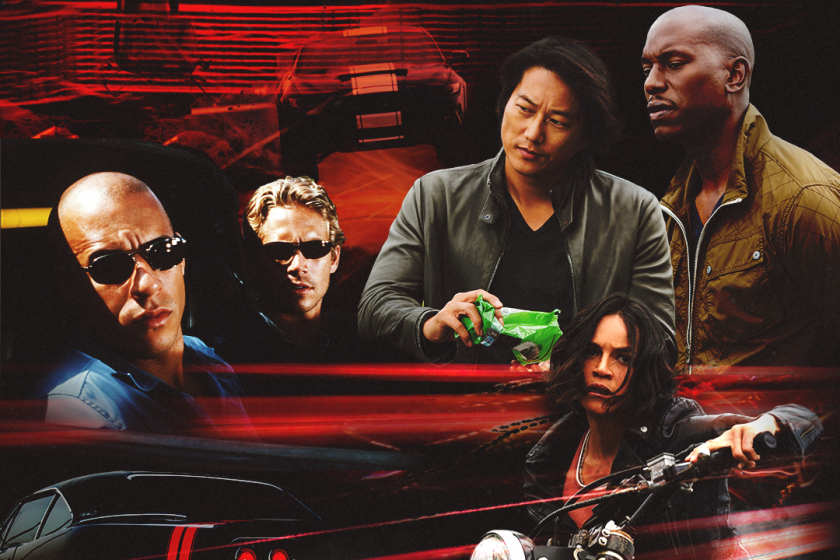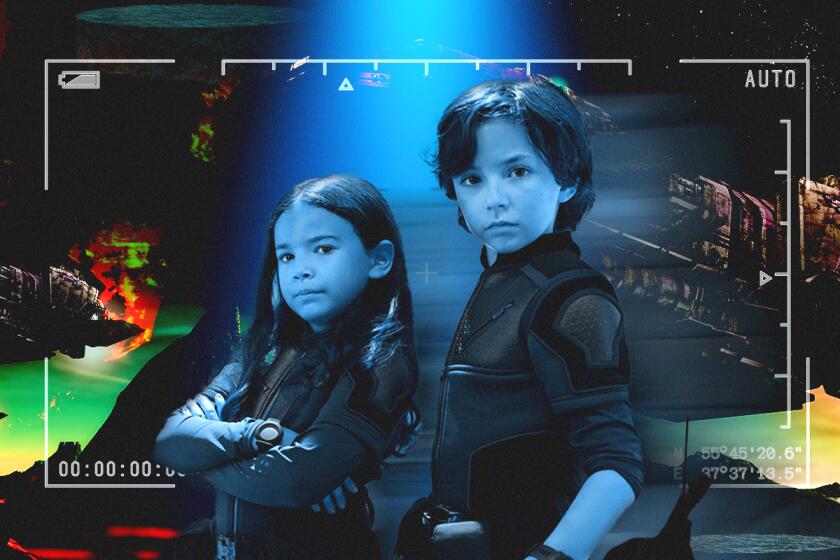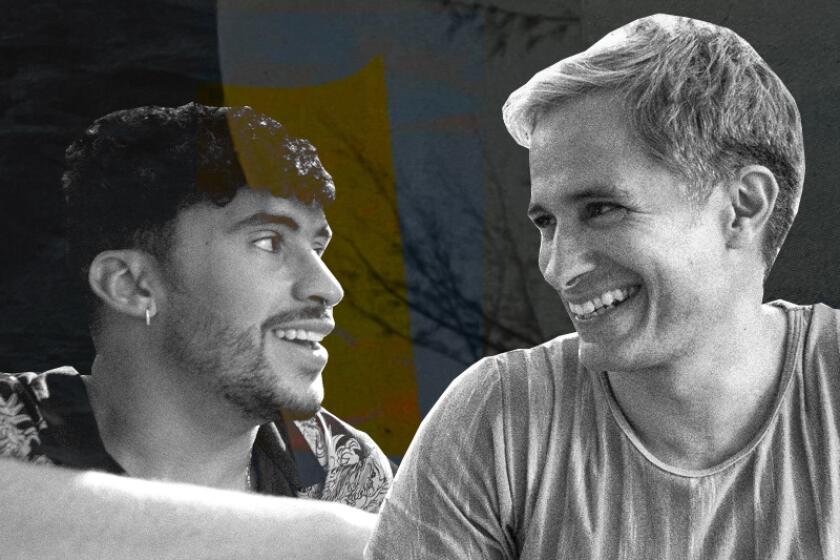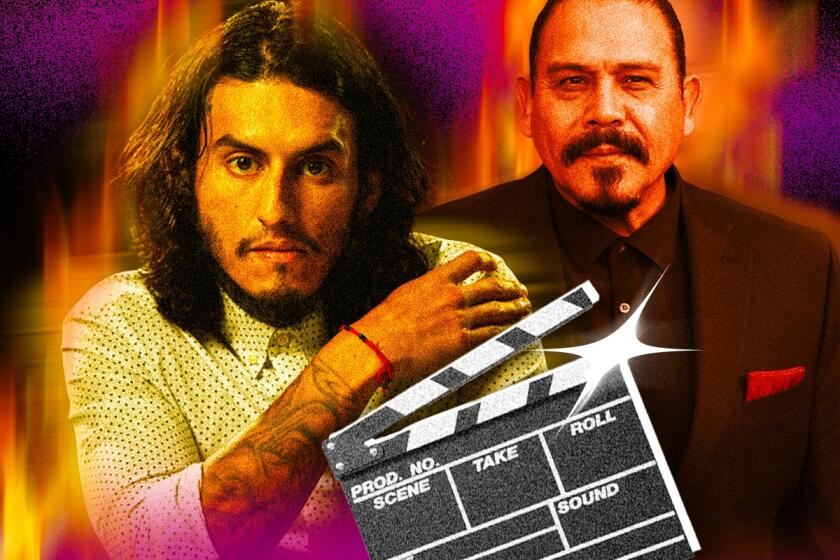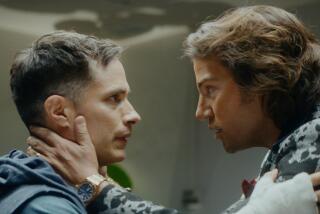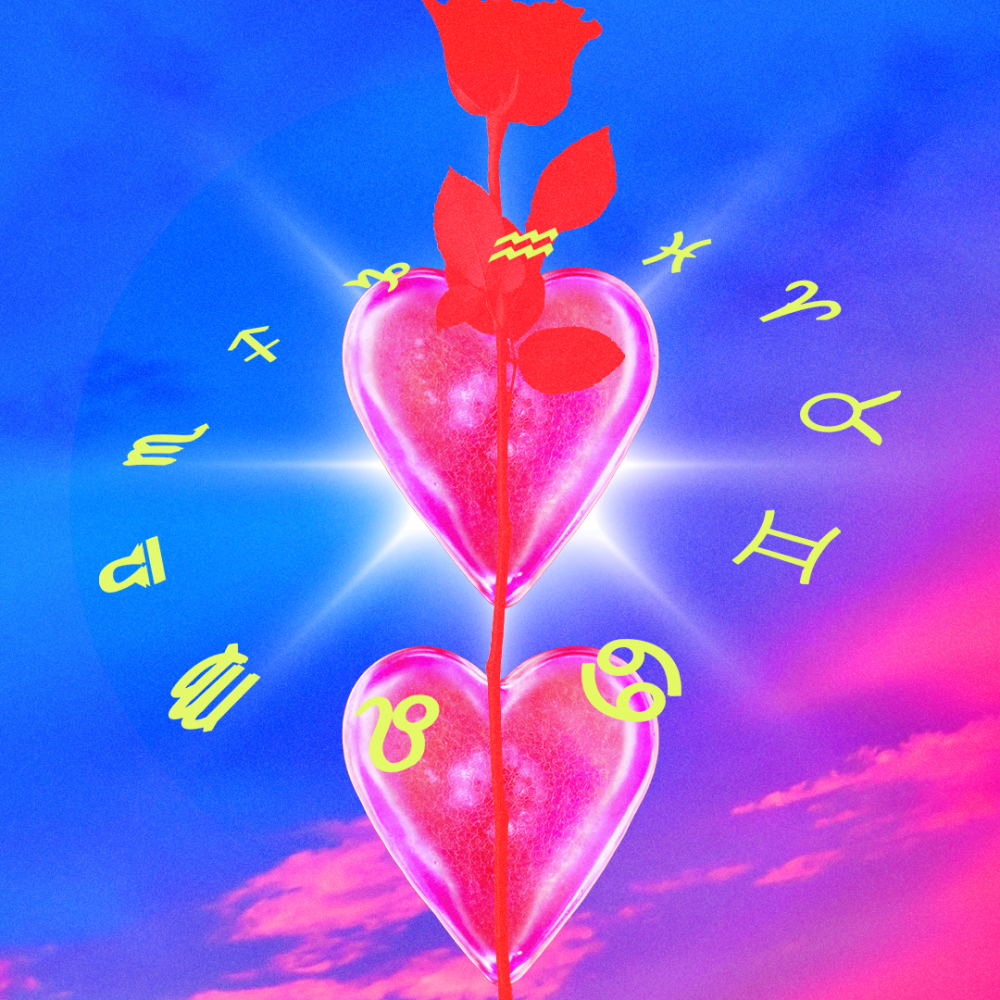
- Share via
I first learned about love like most of us do — watching from afar. From my seat in the church pews in early 2000s Maryland, I saw love as a solemn vow cloaked in white walking down the aisle. From my family’s childhood floral sofa and our paunchy television, it was the passion of the telenovelas I’d watch behind my mother’s back.
What tied these versions of love together was the pretense of happily ever after. That is until I began to watch “12 Corazones” with my mother when I was 6 years old.
For the first time, I learned about dating. Love, with the allure of astrology, was an opportunity for fun and exploration.
The Latinos on ‘Love Island USA’ are the embodiment of many cultural tropes that some fans of the show have experienced firsthand.
The vastly acclaimed Spanish-language dating game show aired on Telemundo from 2005 until 2017. It was hosted by the charming and affable Penélope Menchaca and its Walter Mercado-equivalent, astrologist Edward’O, with occasional co-host Maximiliano Palacio.
The 12 contestants, often eight women and four men, were referred to by their zodiac signs. They would engage in risqué games and dress up in themed costumes. After rounds of eliminations, roundtable discussions and birth chart readings, lucky participants would be able to find their “heart,” or rather, couple up.
I decided to revisit “12 Corazones” to redeem what I believe to be a maligned and underappreciated television program. I also wanted to understand the ways the show primed its younger audience about love and relationships.
I found that the program’s legacy extends beyond my initial query. It is one of the first popular pieces of Spanish-language media that brings together first- and second-generation Latinos, namely immigrant parents and their American-born children, as it was in my experience.
“It’s originally an Argentinian format that was purchased for U.S. consumption, for a Latinx audience,” said Ramón Resendiz, an NYU adjunct professor in the media, culture and communications department, where he currently teaches a course on Latino Media.
The ‘Fast & Furious’ franchise is a film series that is underappreciated for its representation of Black, Latinx and Asian communities that have made the franchise so special, both in its creative team and audiences.
Resendiz makes the distinction between a Latinx show and a Latin American show simple: It comes down to where the show was produced. Because “12 Corazones” was filmed in Los Angeles, he noticed the accents of contestants. Some were native Spanish speakers from Latin America while others spoke Spanish fluently, but it was evident they spoke English as their dominant language, according to Resendiz. The use of Spanglish, while limited, is also notable.
More than ever, Latinx and Latin American audiences overlap in their media consumption. Not only due to the porous nature of borders but also because of, as Resendiz highlights, the leniency of distribution rights and the increasing accessibility of streaming services.
Resendiz also commented on the dynamics at play among participants on “12 Corazones” that set it apart from other formats.
“The telenovela format always gives us the fairy tale. It has a very strict structure, but we know it. There’s gonna be a man and a woman, love interests, drama. This show doesn’t do any of that. But at the end of the day, there has to be an antagonism that is being produced between these two genders, so it’s very binary.”
In my rewatch, I remind myself that the show aimed to entertain, not educate.
Yet the show’s cultural impact is apparent, from our preoccupation with astrology to clips of the show making the rounds on social media. In conversation with former host Penélope Menchaca, I explored another aspect of the show’s enduring relevancy — its representation of dating and gender roles.
At the start of filming, Menchaca was 37, a mother of two daughters and had married for a second time. She cites these as strengths, revealing the secret to her infectious hosting skills and her humorous, lighthearted approach to love.
For my astrology aficionados, the Virgo native did admit that most of the sign’s characteristics resonate with her, yet she always felt that her on-air personality was different from her personality off-air.
Nearly a decade after the release of the original ‘Spy Kids,’ a new chapter is being released. Writer-director Robert Rodriguez talks about the legacy of the franchise and his filmography.
When it comes to love, Menchaca believes astrology is not the be-all-end-all, but it could be helpful in finding a specific kind of personality.
“I think [astrology] is just for fun,” Menchaca told De Los. “I can tell you that Edward’O wasn’t like an actor. He did dedicate his life to that.”
With that, Menchaca immediately delved into telling De Los the reality behind the scenes. To the relief (and praise!) of my 6-year-old self, much of the chemistry exhibited between contestants was real — no one was being forced to interact, much less kiss anyone.
The men and women were separated in different rooms until filming began. Menchaca encouraged contestants to ask the kinds of questions they would ask each other on first dates.
The idea was to allow men and women to swap places in the courting process — women get to choose, and men get to be pursued. Menchaca’s intention as host was to put a spin on casual dating, where women could be empowered and both parties could consent. The show emulated a safer yet somewhat authentic dating experience since participants underwent background checks.
This sentiment extended to her hopes of what the show could offer parents and their children. Most of the people who approach Menchaca to rave about the show are the latter, who are now young adults.
The use of words like “cuchiplancheo” to talk about intimacy was one of her tactics for parents to be able to enjoy the show with their children in the room. To viewers who understood the word, it meant the roundtable discussions on relationships, gender roles and social life were of relevance.
Contestants did not always exemplify healthy and sensible choices but were unabashedly honest in their expectations in these areas, which exposed viewers to different kinds of perspectives.
In the new film “Cassandro” Bad Bunny shares his first on-screen kiss with Gael García Bernal and speaks with a Mexican accent.
“I think we, as Latinos, have so many troubles in trying to talk to our kids about sex,” Menchaca said. “We really don’t do it because it’s taboo. And we forget to talk about the most important part, [that] you should put limits when you start dating someone.”
Today, Menchaca is a personality for “Hoy Día,” a Telemundo Spanish-language morning show. But she recalls the honesty and innocence of the show — and even put herself to the ultimate test when she allowed her eldest daughter, then 18, to be a contestant in the first season. She didn’t reveal to the producers that it was her daughter at the time. “She participated and kissed a guy,” Menchaca said.” I think I even covered my eyes!” she said.
Participants could also “steal” a suitor who was already besuqueado and paired off, something that happened often.
The couples who did go on to date eventually broke up, but Menchaca remembered that she would run into couples kissing in the parking lot after the show.
“12 Corazones” had a little bit of that happily ever after, after all.
To this day, the show’s demise is shrouded in rumors that its racy undertones are to blame. Menchaca says that it was due to leadership changes at Telemundo, and she was being offered new projects, but she would do it again in a heartbeat.
Why playing the stereotypical Latino role as a criminal is not a problem for some Hollywood actors.
“Maybe we will be now able to talk more openly,” Menchaca said at the idea of a reboot. Although nothing is currently in the works, the show will always be remembered for its cultural relevance.
“12 Corazones” is a Hispanic cult classic with more revelations in it than you expect, even if it delivers them through colorful disco lights and a “¡Vuelta! ¡Vuelta! ¡Vuelta!” that allows us to unleash our inner románticos.
Allison Argueta-Claros is a Salvadoran American writer based in North Jersey. She studies migration studies, journalism and creative writing at New York University. @allisonargueta_
More to Read
The Latinx experience chronicled
Get the Latinx Files newsletter for stories that capture the multitudes within our communities.
You may occasionally receive promotional content from the Los Angeles Times.


